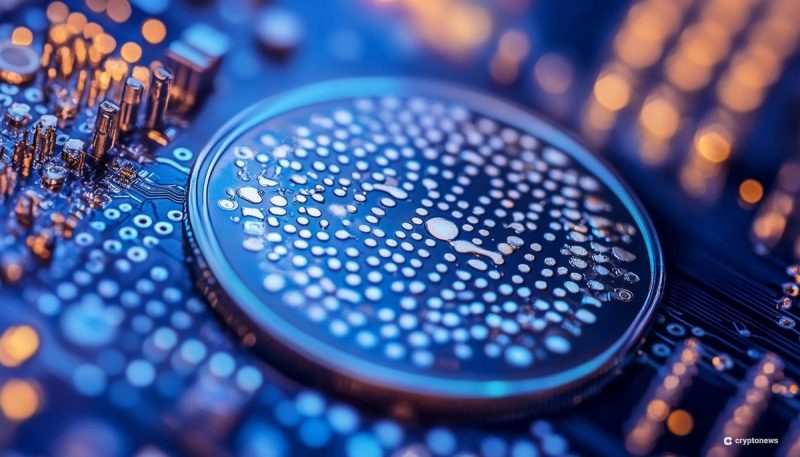The IOTA Foundation (MIOTA) has introduced a blockchain-based Digital Product Passport (DPP), which aims to improve the traceability and sustainability of electronic devices.
According to the Foundation’s August 7 announcement, new tools designed in collaboration with Technical University of Catalonia and eReuse will provide a detailed record of the lifecycle of electronic devices, from manufacturing to recycling. This tracking will enable consumers, businesses and regulators to make informed decisions about product lifecycle management.
[#EBSI Update] As part of the @EU_EBSI PCP, we’ve developed an Electronics Digital Product Passport (DPP) prototype with @la_UPC & @eReuseOrg. It leverages #IOTA for transparency & traceability across the lifecycle of electronic devices.https://t.co/xY84ndSjxL pic.twitter.com/olRHTPrLjy
— IOTA (@iota) August 7, 2024
A key component of the DPP is the EBSI Trust Framework and the IOTA Identity Library, which provide a secure system for managing digital identities and credentials, ensuring trust and accountability throughout the supply chain.
EBSI, or European Blockchain Services Infrastructure, is a network developed by the European Commission and the EU member states, Norway and Liechtenstein that supports cross-border services between governments, businesses and citizens.
How the Digital Product Passport Works
The DPP functions by creating a digital record of a product, including information about its components, manufacturing processes and end-of-life options. This data is stored on Tangle, IOTA’s distributed ledger technology (DLT), ensuring its integrity and security.
When a product is manufactured, a unique digital passport is created and linked to the device. Throughout the product’s lifecycle, information about ownership changes, repairs, and recycling is added to the passport. This data can be accessed by authorized parties, such as manufacturers, retailers, and recycling facilities.
The IOTA-EBSI Trust Framework plays a crucial role in verifying the authenticity of the information contained in the DPP. By using decentralized identifiers (DIDs) and verifiable credentials (VCs), the framework ensures that only trusted parties can access and modify the passport data.
Electronics DPP prototype architecture. Source: IOTA FoundationAddressing the Electronics Waste Crisis
The electronics industry generates vast amounts of waste, posing significant environmental challenges. According to the Global e-Waste Monitor 2024, 62 million tonnes of electronic waste were generated in 2022, an 82% increase since 2010. This figure is projected to soar to 82 million tonnes by 2030, representing a 32% increase from 2022.
The implications of this crisis are far-reaching. Billions of dollars worth of valuable resources are squandered or dumped each year. Moreover, the recycling of rare earth elements, crucial for numerous technologies, is woefully inadequate, with only 1% of global demand currently met through e-waste recycling
By tracking the lifecycle of electronic products, IOTA’s DPP can help identify opportunities for recycling and reuse. For example, by analyzing the components of a device, manufacturers can develop more sustainable products and recycling processes. Additionally, the DPP can help prevent illegal dumping and ensure that valuable materials are recovered and reused.
EU’s Circular Economy Goals
The European Union is taking a leading role in promoting sustainable solutions to reduce Europe’s environmental impact. In late March 2022, the EU Commission announced that the DPP will become mandatory for several product categories starting in 2024. The initial focus will be on electric vehicle batteries, textiles, construction materials, consumer electronics, packaging, and food.
IOTA’s DPP was developed as part of the EU’s broader sustainability goals. It aims to ensure that products are designed to last longer, are easier to repair, and use more environmentally friendly materials. Additionally, the EU initiative seeks to increase recycling rates to conserve resources and reduce environmental impact
The post IOTA Brings Digital Product Passport for Electronics, Combating E-Waste appeared first on Cryptonews.


